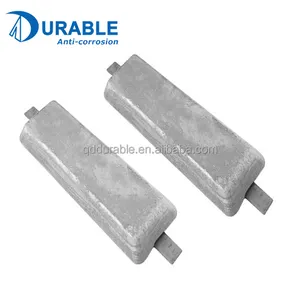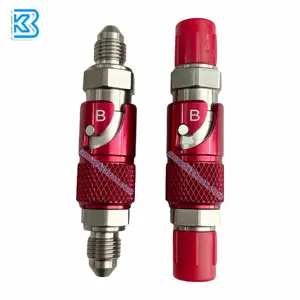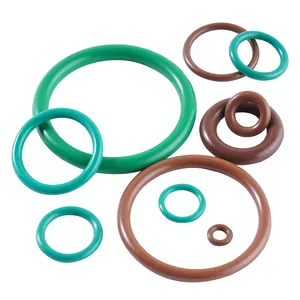Populaire dans votre secteur d’activité






Fabrication chinoise de zinc, 10 pièces, anions en forme de boulon et de soudage, pour véhicules et tuyaux
1,87 € - 46,72 €
Commande minimale: 20 pièces






Inconel 718 625 fil de soudage à barre ronde prix alliage de nickel pur UNS N07718
16,36 € - 22,90 €
Commande minimale: 100 kilogrammes







E6013 E7015 E7018 ER70S-6 Baguette De Soudage En Acier Au Carbone Électrode De Soudage 6013 Baguettes de soudage EB5366
1,41 € - 1,59 €
Commande minimale: 5 kilogrammes







Bande en alliage de Zinc, en cuivre et Nickel, C7701 c7700
7,48 € - 8,41 €
Commande minimale: 50 kilogrammes







Lingots de zinc métal lingot de zinc pur de haute qualité 99.995% prix d'usine lingots de zinc spéciaux de haute qualité
1 214,66 € - 1 681,84 €
Commande minimale: 1 carton







Les bijoux de haute qualité sont vendus en tiges de tantale pur
214,91 € - 280,31 €
Commande minimale: 1 kilogramme














Électrode en feutre de carbone feutre de graphite pour électrode de batterie à flux pour toutes les batteries à flux de brome au zinc et au vanadium
32,71 €
Commande minimale: 1 mètre carré






EE010a1 - EE010a2 matériau de pôle PTFE PEEK électrode à disque de Zinc
89,70 € - 99,05 €
Commande minimale: 1 jeu


Tige de brasage en argent 20% d'usine Oem électrode de soudage en alliage de brasage Ag Cu Zn Sn Argent Cuivre Zinc Étain
169,92 € - 178,33 €
Commande minimale: 20 kilogrammes
Recherches associées:






Électrode de référence de zinc de haute pureté Offre Spéciale utilisée pour l'environnement du sol
33,17 €
Commande minimale: 1 pièce






Électrode de soudage SFA 5.7 ercmi-a s211 tig, en alliage de cuivre
9,35 € - 12,15 €
Commande minimale: 500 kilogrammes






Électrodes de soudage E6011, tige de soudage 6011
0,897 € - 0,9624 €
Commande minimale: 5000 kilogrammes






Meilleure vente AWS A 5.7 ERCuSi-A S211 électrode en laiton tig 2.0mm
9,16 € - 9,18 €
Commande minimale: 200 kilogrammes






Électrode à revêtement dur en alliage dur YD pour le forage de pétrole, l'excavation de la terre, le charbon, les industries minière
35,51 € - 51,39 €
Commande minimale: 5 kilogrammes






49% 45% Électrode de fil de soudure à l'argent Prix par kg
467,18 € - 934,36 €
Commande minimale: 1 kilogramme






Électrode d'anode en titane revêtue DSA Usine d'électroextraction de zinc Cellule électrolytique électrochimique Produit métallique haute performance
23,36 € - 28,04 €
Commande minimale: 1 pièce






Meilleure vente AWS A 5.7 ERCuSi-A S211 électrode en laiton tig 2.0mm
8,97 € - 9,16 €
Commande minimale: 200 kilogrammes






SAIDKOCC Mousse poreuse Zinc/électrode de batterie en métal Zn/support d'électrocatalyseur/recherche scientifique et matériaux expérimentaux
8,80 € - 366,60 €
Commande minimale: 2 pièces

Matériaux d'électrode de collecteur de courant de batterie d'argent de zinc de maille métallique d'Ag d'extension de maille d'argent pur
9,35 € - 46,72 €
Commande minimale: 1 jeu






Fil de brasage fourré à tige zn98al2 zn78al22 et zn85al15, fil de soudage en alliage de zinc et d'aluminium
0,9344 € - 2,81 €
Commande minimale: 1000 kilogrammes

Matériel d'électrode de collecteur de courant de batterie d'argent de zinc de maille métallique d'Ag d'extension de maille d'argent pur
9,35 € - 46,72 €
Commande minimale: 1 pièce






Nanovn Cu60Zn40 — poudre de laiton Nano en alliage de Zinc, monoparticules, prix d'usine
0,9344 € - 93,44 €
Commande minimale: 1 kilogramme






Électrode de soudage en laiton HS222 RBCuZn-c baguettes de brasage en cuivre
12,15 €
Commande minimale: 10 kilogrammes






Tiges de brasage en argent 60%, matériau de soudage à bas Point de fusion, alliage de cuivre et de Zinc, tige d'argent
261,62 € - 280,31 €
Commande minimale: 1 kilogramme






Électrode de mesure pour la Protection catoïde, 1 pièce, pour joints depuis la chine, offre spéciale
9,35 € - 92,51 €
Commande minimale: 10 pièces


Usine chinoise Ag134 | BAg34CuZnSn | Électrode de soudage en acier au carbone argenté 34%
278,81 € - 289,08 €
Commande minimale: 20 kilogrammes






Électrode d'anode en titane revêtu de mmo cellule électrolytique électrochimique tubulaire en zinc
23,36 € - 28,04 €
Commande minimale: 1 pièce






Nouveau Design de soudure rapide, fourniture à bas prix, tige d'électrode de soudage en cuivre
9,44 € - 9,54 €
Commande minimale: 500 kilogrammes






SAIDKOCC haute pureté zinc métal/feuille/plaque/99.99%/feuille d'électrode de batterie
3,06 € - 152,56 €
Commande minimale: 5 pièces






Tiges de brasage en argent 30%, matériau de soudage à bas Point de fusion, alliage de cuivre et de Zinc, tige d'argent
14,95 € - 18,69 €
Commande minimale: 10 kilogrammes






RBCuZn-C Electrodes fourrées à flux de bronze à faible émission de fumée Brasure cuivre-zinc-soudage de tiges nues et revêtues de flux
6,64 € - 6,92 €
Commande minimale: 200 kilogrammes


Entrepôt EU US 30% Tige de brasage argent cuivre phosphore étain électrodes de soudage acier au carbone
247,29 € - 256,63 €
Commande minimale: 20 kilogrammes



Fabrication et fournisseur de zinc, 10 pièces, anode, type Howah, bas prix
9,35 € - 46,72 €
Commande minimale: 10 pièces






Revêtement en oxyde d'iridium anode en titane alliage d'électrode feuille/feuille de zinc en aluminium alliage de magnésium-pour les applications de sel de piscine
23,36 € - 28,04 €
Commande minimale: 1 pièce






Meilleures catégories
Concernant électrode zinc
Pour bien faire le travail de soudage, les utilisateurs ont besoin du droit. électrode zinc. Sur Alibaba.com, les acheteurs peuvent trouver une vaste sélection pour tout travail de soudage. Il existe des choix pour des réparations simples ou des besoins de soudage de base. Les acheteurs peuvent également trouver des produits spécialisés. électrode zinc pour des applications spécifiques. Il existe des options sous la forme de divers matériaux tels que le carbure de tungstène, l'alliage d'aluminium et l'acier au carbone. Les consommateurs peuvent également choisir de commander une quantité minimale ou d'acheter en gros pour répondre à des besoins plus importants.
En matière de construction et de fabrication, le soudage est toujours un élément clé. Chaque projet nécessite le bon type de. électrode zinc. Si les mauvais matériaux sont utilisés, des résultats catastrophiques pourraient avoir lieu. Par exemple, les variétés à base de carbure de tungstène sont parfaites pour le pétrole et les mines. Leur dureté est très utile pour les perceuses à huile, les tuyaux et autres raccords.
Utilisateurs recherchant. électrode zinc pour le soudage industriel léger et de précision trouvera qu'Alibaba.com a des options parmi lesquelles choisir. Plusieurs fabricants proposent des matériaux destinés au soudage cosmétique. Ils sont idéaux pour créer de belles perles. Certaines applications comprennent les industries automobiles et les structures de faible épaisseur. Encore une fois, les utilisateurs peuvent choisir parmi une variété de matériaux pour réaliser le projet.
Les acheteurs doivent choisir le bon. électrode zinc pour chaque projet de soudage et leur budget. Chaque application a une exigence spécifique de résistance, d'aspect et de résistance. C'est pourquoi Alabiba.com est l'endroit idéal pour rechercher ceux qui correspondent au projet en cours. Qu'il s'agisse d'une grande construction et d'une exploitation minière, ou d'un soudage de précision, des options sont disponibles. Il existe un grand choix de divers matériaux, fabricants et même des quantités de commande minimales.
En matière de construction et de fabrication, le soudage est toujours un élément clé. Chaque projet nécessite le bon type de. électrode zinc. Si les mauvais matériaux sont utilisés, des résultats catastrophiques pourraient avoir lieu. Par exemple, les variétés à base de carbure de tungstène sont parfaites pour le pétrole et les mines. Leur dureté est très utile pour les perceuses à huile, les tuyaux et autres raccords.
Utilisateurs recherchant. électrode zinc pour le soudage industriel léger et de précision trouvera qu'Alibaba.com a des options parmi lesquelles choisir. Plusieurs fabricants proposent des matériaux destinés au soudage cosmétique. Ils sont idéaux pour créer de belles perles. Certaines applications comprennent les industries automobiles et les structures de faible épaisseur. Encore une fois, les utilisateurs peuvent choisir parmi une variété de matériaux pour réaliser le projet.
Les acheteurs doivent choisir le bon. électrode zinc pour chaque projet de soudage et leur budget. Chaque application a une exigence spécifique de résistance, d'aspect et de résistance. C'est pourquoi Alabiba.com est l'endroit idéal pour rechercher ceux qui correspondent au projet en cours. Qu'il s'agisse d'une grande construction et d'une exploitation minière, ou d'un soudage de précision, des options sont disponibles. Il existe un grand choix de divers matériaux, fabricants et même des quantités de commande minimales.




































